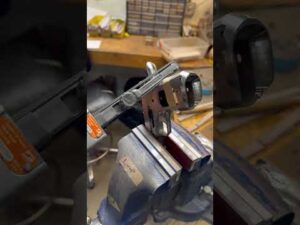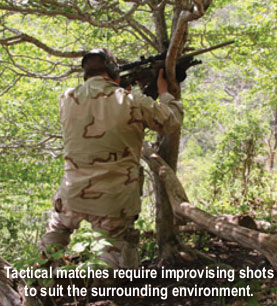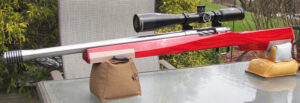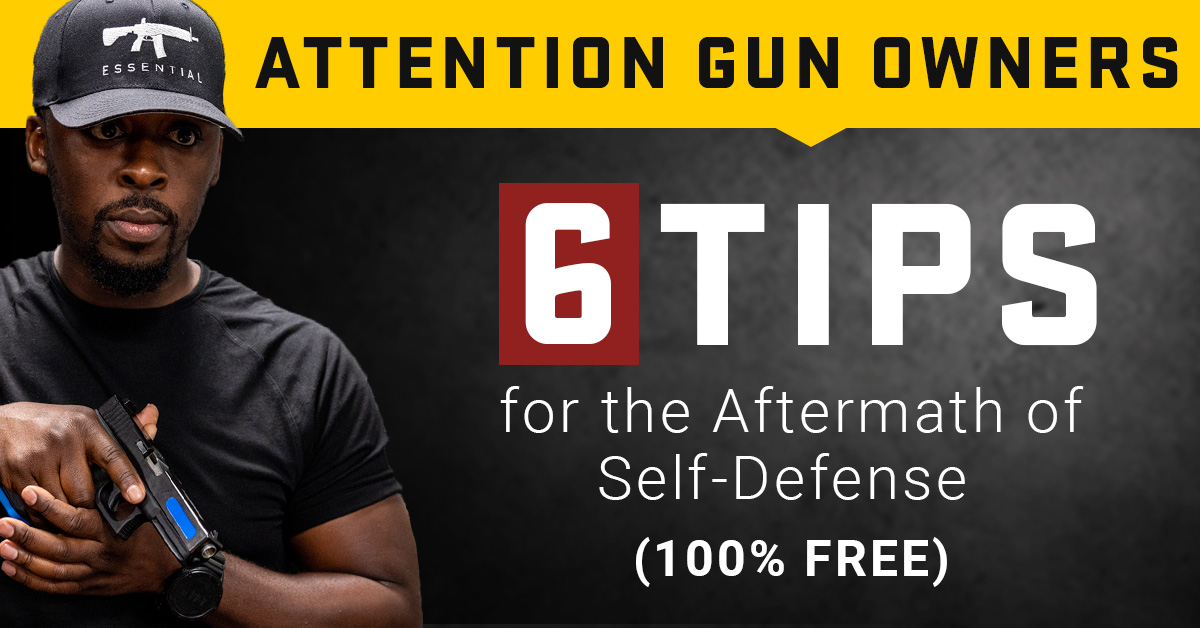Guest Article By Michelle Gallagher, Berger BulletsLet’s be honest. There is something for everyone in the world of firearms. Do you enjoy competing? Are you a hunter? Are you a more avid shotgun or rifle shooter than a hunter? Do you like to run between the stages of a course or do you prefer shooting single-hole groups? Chances are, even though we all shoot a variety of firearms and disciplines at different times, we have a favorite. Do we spread ourselves too thin by trying different disciplines or is it beneficial? I have found that taking part in multiple disciplines actually improves your performance. Each shooting style is different, so they all develop different skills. How can cross training in other disciplines benefit you? Let’s begin with prone long-range shooting. To be a good long-range shooter you need to have a stable shooting position, accurate ammunition and good wind-reading abilities. You can improve these areas with time and effort. However, there are more efficient ways to improve. Spend some time practicing with smallbore. Smallbore targets and rifles are less forgiving in terms of shot placement and execution. Long-range targets can be a lot larger, so you are able to accept less than perfect shots. Smallbore will force you to focus on a perfect center shot every time. Shooting at long distances on smaller targets is another way to achieve this with your High Power Rifle. You will also be forced to accept nothing but perfection. Iron sights are the best way to shoot at an F Class target. The X-Ring is 10 inches at 1000 yards on a long-range target, but only 5 inches on F-Class targets. You will need to concentrate more on sight alignment in order to hit the center of the target. You will be surprised at how big the ten-ring target looks when you return to the conventional targets. Most prone rifles are also compatible with a bipod. Install a scope and bipod on your rifle and shoot FTR. By using a bipod and scope, you can eliminate the position and eye-sight factors and concentrate on learning to read the wind more accurately. The smaller target will make you more aggressive in your wind calls. This will also encourage you to use more efficient loading techniques. It is frustrating to make a good wind call and then lose the point at the top or bottom of the target due to inferior ammunition. You will be surprised at how much easier it is to hit the long-range targets if you have worked hard to achieve good scores on the F Class target. F-Class shooters will sometimes shoot fast to chase the spotter. Shooting prone teaches patience by allowing you to choose the wind conditions to shoot in and wait for them to return. Benchrest shooters have a wealth of knowledge about reloading. Benchrest matches are a great place to learn about better loading techniques. You may not be in contention for the win, but you’ll learn a great deal about reloading your gun and gun handling. Shooting F-Open, which is closely related to Benchrest, can also help you develop these skills. Shooting F-Class matches at mid- or longer-range can help benchrest shooters learn new wind-reading skills. Shooting different disciplines can help position shooters improve their skills. Shooters of high-power Across-the Course can benefit from shooting air rifles and smallbore. These targets are also very small, so competitors will be encouraged to be more critical about their shot placement. Hunters can benefit from silhouette matches as they will get practice shooting with a scoped gun while standing. Tactical matches are also good because they require improvising shots at various distances and positions. [Editor: Many of the tactical matches involve hiking and moving from one position to another. This can motivate a shot to maintain a high level of fitness.] You can gain from trying out other shooting disciplines. Talk to other shooters. The other shooters are more than willing to share their knowledge. Try something new. You might be surprised at what you learn. You will learn new skills, and improve those you already possess. You may discover a new interest or develop a deeper understanding of the discipline that you began with. This article was originally published in the Berger Blog. The Berger Blog is a great source of information on Berger products and includes articles on hunting and target shooting. Article Search by EdLongrange.

















